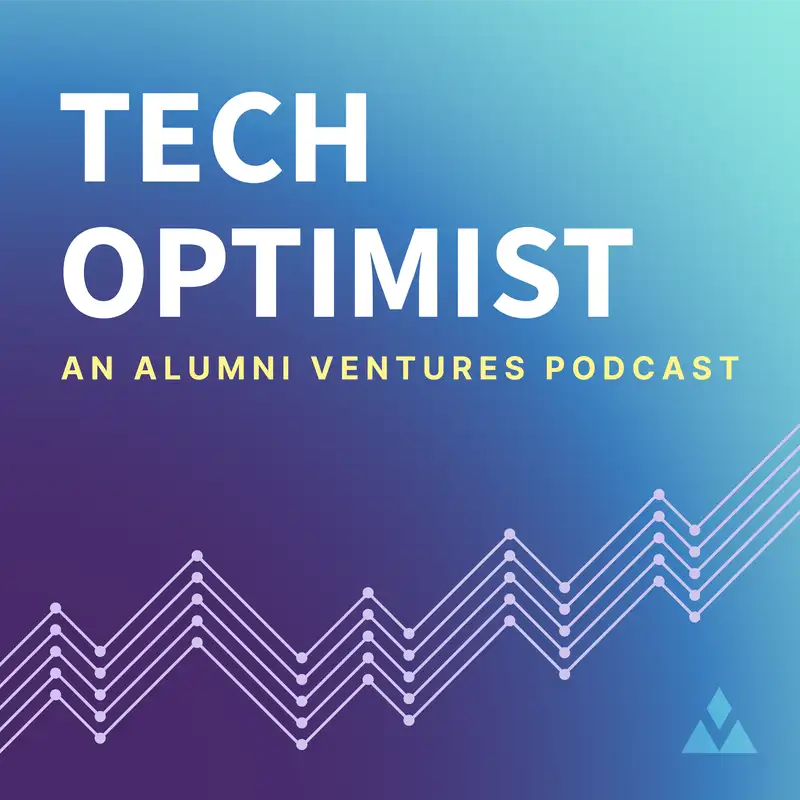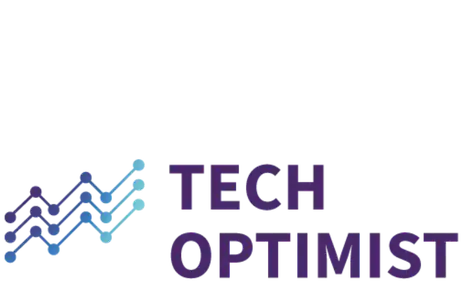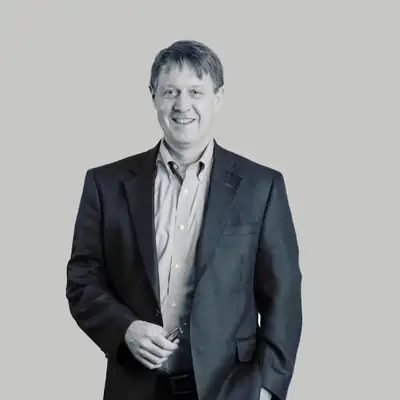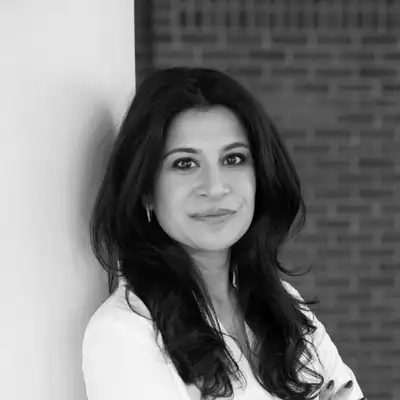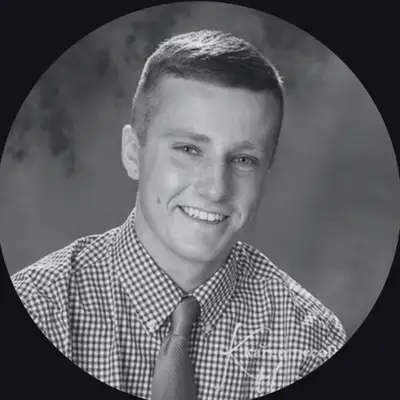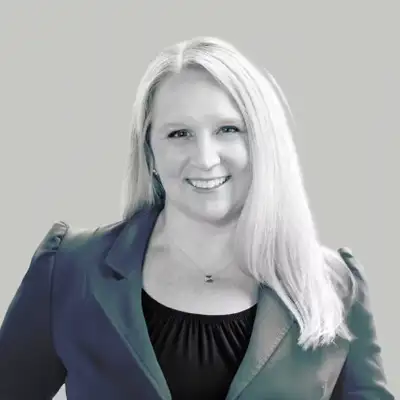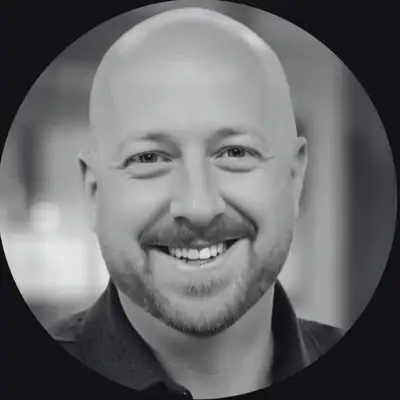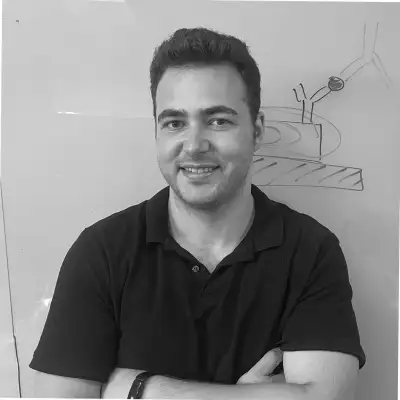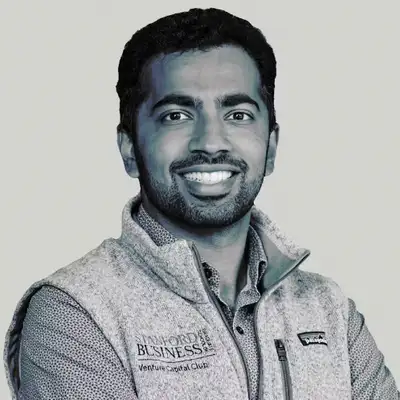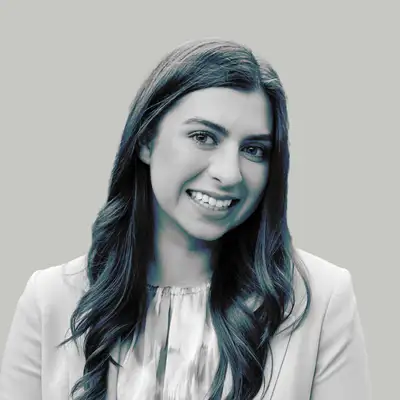#4 - Dad Dies, Now The Work Starts
Speaker 1 (00:00:02):
In a world captivated by criticism and negative clickbait headlines, it's easy to overlook the scope and power of technologies propelling us forward. At Tech Optimist, we delve into the vibrant intersection of technology and entrepreneurship, shining a light on innovators who are building a better future.
(00:00:21):
As members of the most active venture capital firm in the United States, our unique vantage point offers us insights into the real-world impact of technology. Join us as we explore, celebrate and contribute to the stories of those creating tomorrow.
Mike Collins (00:00:49):
Welcome to the fourth episode of the Tech Optimist podcast. We have two portfolio company interviews for you today. One is working in the area of home medical testing. The other is trying to help families working through the settling of an estate. Enjoy the show. We have three blocks for you today. In block one, we meet our portfolio company, SiPhox.
(00:01:13):
They're innovating in the area of home medical testing, something we're going to see a lot more of as we move into a more customized, remote, AI-driven healthcare system. In block two, I talk to the founder of Alix, a company working in the area of estate execution. If any of you, like I have, have had to work through the settling of an estate, you know how time-consuming, disorganized and expensive it is.
(00:01:40):
It's an area where innovation can really help and Alix is trying to do it. Finally, in block three, we end the show with a segment where I chat with a young VC in the business, and we talk about things going on in their career and in the industry. Today, we're talking a little bit about AI. As a reminder, the Tech Optimist podcast is for informational purposes only.
(00:02:05):
It is not personalized financial advice, and it is not an offer to buy or sell securities. For additional important details, please see the text description accompanying this episode. Okay, let's get into block one. Here's the company, SiPhox. Michael, it's nice to meet you. SiPhox is AV portfolio company. Why don't you just introduce yourself and introduce your company and what you guys do?
Michael Dubrosvky (00:02:41):
Sure. My background's originally in chemistry, materials, biology, kind of that nexus, but for the past, I want to say, six or seven years now, I've been working, it's called silicon photonics. Silicon photonics is using semiconductor technology, but instead of controlling electrons, you're controlling photons, so working with light.
(00:03:07):
This call we're having actually is going through multiple photonic chips, because there are fibers connecting data centers. Eventually, you have to convert the light into electricity because computers use electrons. All of those conversions are being done on photonic chips, and that's really what's enabled the connectivity we have today.
(00:03:26):
The way that the internet's been scaled. So we use that technology to do blood testing. The reason that makes sense, is that if you go into a central lab like a Quest or a Labcorp, if you open up the tools that they're using, they're full of optics. So that's lasers, lenses, detectors and so on. What we're doing is basically miniaturizing all the optics that go into one type of blood testing tool called an immunoassay analyzer.
(00:03:56):
We're taking that tool and turning it into something that can be used in the home, and so that's the main thrust of the company. We're already in the market with something that's a little bit less innovative. It's a mail-in test where you put your blood on a small card that separates the cells from the serum. That card is preserved in a desiccant bag and shipped to a central lab, where we provide 17 different biomarkers from that one card.
(00:04:25):
We were able to put something on the market that's very dominant in terms of cost versus performance. You have to get six test kits from our competitor in order to equal one. You have to stab your finger six times to get the same results, and so that's been really interesting. We've been doing that for about the last year and a half and it's grown a lot. We have thousands and thousands of people using it every month.
(00:04:51):
We've already saved, we know at least two lives that we've more or less saved with things that we've found, but we don't know the medical history of what's happening to people after they take the test. But we have at least two that have been documented in basically Trustpilot reviews. But it's been really interesting and the goal of the company is really to put a device in every home.
Mike Collins (00:05:14):
This is more of just an interim step. You generate some revenue, you debug the technology. Walk me through the strategy of how you came about this.
Michael Dubrosvky (00:05:27):
Yeah. The development cycles and medical device are very long. If we weren't in such a regulated space, we would've already launched to the home.
(00:05:36):
The technology, as you know, already a year and a half ago we could do demos at conferences on where we would pricks on this finger and give a result right away. Basically, this is the kind of engineering units that we already had a year and a half ago.
Mike Collins (00:05:52):
He's holding up, for the listeners, he's holding up something about the size of a shoebox, maybe a little smaller.
Michael Dubrosvky (00:05:57):
No, even smaller. This is my phone here. Basically, it's a little larger.
Mike Collins (00:06:03):
It's like a phone box, yeah.
Michael Dubrosvky (00:06:05):
Yeah. It's a little bit larger than a phone, but basically already very low costs, a couple hundred dollars range, even in low volume. The problem is that when you make a medical device, they often get stuck the way they are. You want that first version, as opposed to pretty much every other product, where you just launch and see how the customers like it.
(00:06:28):
With the medical device, you don't get to iterate that much. The first version has to be very strong. So we decided not to compromise and to focus on developing the market with something that could be launched quickly. The reason mail-in testing can be launched quickly is that it's regulated in a completely different way.
(00:06:48):
It's regulated by, this is maybe boring, but it's regulated by something called CLIA, and you have a lab director in the lab. It's like the lab director acts as like a miniature FDA. It's totally different and there are lots of-
Mike Collins (00:07:00):
Super smart way to go. You've seen almost the opposite example with some of the, I won't name the company, but they launched a wearable.
(00:07:13):
It's not really ready for prime time, but it takes a lot of money. Then all of a sudden, you get bad reviews. Yeah, everything in software sucks when you first launch it too. It's just you get to iterate-
Michael Dubrosvky (00:07:27):
Very quickly.
Mike Collins (00:07:28):
... very quickly. It seems like this is a really clever way to stay on the innovation, rapid iteration cycle.
(00:07:39):
Provide value to people, while you continue to refine hardware and software, so really smart. I commend you for that.
Michael Dubrosvky (00:07:48):
I was just digging around, this is the V1. We're now deep into building basically V2, but this is what the V1 looked like. You have a chip here that's got 15 different sensors on it that do immunoassays. You can do in theory up to 15 proteins and hormones, and then there's some fluidics and so on. This plugs into the reader like this.
(00:08:17):
We could have commercialized this, but basically we decided to go to mail-in testing. It's been working very well. It's a strategy that hasn't really been used yet. The opposite happened to one company. There's a company called Cue Health that launched to the home with a COVID test. I think they spent half a billion dollars scaling up manufacturing and so on.
(00:08:37):
Then they ended up launching mail-in testing afterwards. Because the difficulty of adding more things to that box that they launched to the home was very high and they needed to have more products, and so they launched mail-in testing afterwards. Obviously, at that point, it's very hard to innovate when you're so large and so on.
(00:08:55):
So that's been our strategy. We'll see how it works out. It's pretty unconventional in the medical device, so we'll see how it goes.
Mike Collins (00:09:03):
No, I think it's smart though. It's worth a shot. Where are you in just the fundraising side of this story and the scale of your business right now with people and amount of money you've raised?
Michael Dubrosvky (00:09:16):
Yeah, I didn't mention this at the beginning. It's probably an important detail. I'm co-founder of the company and chief product officer. I'm not the CEO. Actually, early on I was much more involved in fundraising. Now just because of how much is going on, I'm trying to stay out of it a little bit because there's otherwise, because now we have a product in the market.
(00:09:37):
That's taking up a lot of the bandwidth I had that would go into helping with fundraising. But my co-founder, Diedrik, is leading then, he's the CEO, but we went through Y Combinator in 2020, which was extremely helpful. I would recommend it to anybody pretty much. Even though we were probably, really maybe the first chip company, there was maybe one other one or something.
(00:10:01):
But they really did not have experience with semiconductor companies but that didn't really matter. They were still extremely helpful. We did Y Combinator and then we raised... The story of it was that we raised some money, like a couple million, and then that triggered Khosla to come in. Khosla ended up leading the round and we got to about $6 million that way in our seed round.
(00:10:28):
That got us through to having really baked engineering units, like what I showed and so on. Then we raised, it ended up adding to about $30 million with Intel, Khosla, and then they followed on again and so on. Actually, your fund as well, Alumni Ventures, so we raised about a total of $30 million.
Mike Collins (00:10:53):
That was 2023?
Michael Dubrosvky (00:10:56):
Yeah. The 20 million of that was closed in 2023.
Mike Collins (00:11:00):
Right.
Michael Dubrosvky (00:11:01):
Or 19, I think.
Mike Collins (00:11:03):
Excellent. Give us just more context in what do you view as big trends and tailwinds to the work you guys are doing?
Michael Dubrosvky (00:11:16):
I think if you want to be successful in a hype cycle, you really want to be working five years in advance of the hype cycle. For example, if you want to be doing AI, it would've been ideal to be doing it five years ago. I think in some ways we're in that kind of position.
(00:11:34):
I think this home healthcare thing had a moment during COVID, but that like was a proof of concept, I would say. There wasn't a lot of... Telemedicine grew, I think, fortyfold during COVID, so it broke a lot of assumptions about what was possible or not. Because one of the reasons is there's just not good technology, including home blood testing.
(00:11:57):
You need blood testing for 70% of medical decisions or some type of diagnostic, and it's usually blood testing, at least, is involved. It's very difficult to actually do telemedicine and not have the person come in to do it effectively.
Mike Collins (00:12:10):
No, it's like you go in for the blood work, then you do it. It's incredibly inefficient, compared to if we all had one of these units, we could get even the instructions downloaded.
(00:12:24):
You could do the testing, it could eliminate, I don't know, 50% of trips to your physician or even if you just go to an independent lab. Yeah.
Michael Dubrosvky (00:12:39):
Absolutely. I think a lot of us had this epiphany if you didn't deal with the system that much before COVID, during COVID, it was really clear very early on that, "Oh, man." That was our thinking that within 10 years, this type of device will be in many homes, if not all. We're halfway through that. The company's been around about four and a half years. I think the trend is there, six out of 10 Americans have a chronic disease.
(00:13:13):
There's no way to turn back the clock to be in some kind of state where people are very healthy. Maybe you look at Europe, there's some countries which are very walkable, and the food is really high quality. That is not easy to do, but we do know that if you do frequent blood testing and a bunch of other things, a lot of them are actually not expensive. They probably can be solved with software.
(00:13:40):
I think AI is actually going to make that a lot easier. If you look at what makes up the highest quality medicine you can buy, a lot of it is information, checking on the person, improving, tuning what they're doing. But the thing you can't replace with software is actually collecting real data on the human being. Even the physical, you have to get the blood test results, you have to get in some cases, scans and so on.
(00:14:05):
I think that's going to work really well with the trend of being able to automate away a lot of information processing, while bringing to the home the cumbersome process of collecting blood data. But I think that trend is going on. Everything in healthcare is slow, but I think at some point, just because 20% of GDP is being spent on healthcare.
(00:14:31):
We have such... It's hard to tell, is it because people are sick or are people sick because it's so broken? I don't know where the root cause is, but I think that's something we can make a dent in. The trend has to be in the direction of fixing this. We can't go from spending 20% of GDP to spending 80% of GDP. I think it has to be reversed, and that's something that hopefully we can make an impact on and also capture some of that value.
Mike Collins (00:14:56):
Yeah. I think we're also, over the next 10 years going to be, I think people are going to take more responsibility for their own healthcare. I also think it's going to be more... Really, the current system is largely, "Wait until you get sick and are broken and then we'll fix you."
(00:15:21):
I do think that there is a longer-term trend toward if you can manage your numbers and you can manage your weight and you are on top of these tests, it can prevent a far more expensive, reactive form of healthcare. Just it's like even there's a lot of people greatly improving their outcomes with GLP-1 drugs and losing weight and getting healthier, but they all want numbers.
(00:15:53):
How is this affecting my cholesterol? How is this affecting my apoB? How is this, et cetera? It's like, "Oh, if I could get those numbers reasonably and more frequently, it would just be more information for someone to stay healthier longer," which is a huge ROI.
Michael Dubrosvky (00:16:15):
Yeah. One of the things we're doing is launching health programs on top of the blood testing that we already offer. We teamed up with a couple of people that one of them was actually a customer of ours. So he's an MD-PhD that was using SiPhox for a year to track his own blood results. But we recently launched a heart health program in beta, so now we have 50, 100 people in it.
(00:16:40):
The idea is, "Okay, drugs have their place." So statins have their place. Ezetimibe, which is another lipid medication, and maybe GLP-1's do as well, although we're not involved in that yet. But a lot of the time, people don't want to stay on drugs their whole life if they don't have to. Drugs can help you get to a point. This is measurable also, which is interesting.
(00:17:04):
For example, if you're taking statins, you want take the minimum effective dose to get you to a lipid level that's healthy. You can also get your lipids can be too low, so it's something where you really want to tune it. Also, you want to avoid side effects, so it's really the lowest minimum-
Mike Collins (00:17:21):
They know it's a poison, right? It goes back 500 years kind of thing, yeah.
Michael Dubrosvky (00:17:24):
Right now, the way dosage is done is on a population level. It's like on average, we'll throw this at you and see what happens in a year. But basically if it's low cost to do it in a precision way, that's what obviously somebody that's paying 100K, 200K for precision medicine per year or concierge medicine, they're not doing that. It's really can we scale this to a lot of people?
(00:17:47):
It's two parts. It's automating a lot of the effort that the physician has to make. You still want physicians in the loop, but it's automating a lot of the things that they're doing manually now, so they can just scale up. The other thing is to get the measurements more frequently so you can just adjust in low cost so you can make adjustments.
(00:18:03):
But I think the idea of getting people on drug, this is just early, we're still discussing this. But getting people onto a drug that can help them, like a GLP-1 or a statin, and then actually helping them get off of it is big. That's something-
Mike Collins (00:18:16):
It's something you put on the baby, it's the very smallest dose-
Michael Dubrosvky (00:18:19):
Yes, exactly. Exactly.
Mike Collins (00:18:20):
... meets them where they are. Yeah.
Michael Dubrosvky (00:18:22):
That's probably the future of a lot of these types of interventions, which otherwise start making less and less sense if you just stretch them. Is it okay to take a GLP-1 for 30 years? We don't even know, so that's our thinking.
(00:18:39):
That's early but it's something where we think there's a lot of promise in combining frequent testing with this type of taper and optimization of medicine.
Mike Collins (00:18:50):
Great. Any asks for our audience, Michael? How can they help?
Michael Dubrosvky (00:18:56):
Well, you can try, if you're interested in optimizing basically your longevity, but it's more focused specifically on heart health and lipids, and also metabolic markers like fasting insulin. If you're interested in that, you can try getting into the beta that we're doing for heart health.
(00:19:14):
Today, if you join today, basically Phil, who's the MD-PhD working on this, it becomes... There's no doctor-patient relationship, but he's looking at your data for an hour probably when you take a test before you get a-
Mike Collins (00:19:26):
It gets people looking at it. Yeah.
Michael Dubrosvky (00:19:27):
Yes, yeah. I think that's a cool thing you can do if you're curious about it.
(00:19:32):
Or if you haven't, for example, never measured your apoB and you want to get it measured and see where you're at and so on. I think that's a great way to try SiPhox and also help us.
Mike Collins (00:19:44):
Can you do that at your website? If people go to your website, is there a sign-up for your beta?
Michael Dubrosvky (00:19:47):
Yeah, it's partially hidden because when we send people to the site, we try-
Mike Collins (00:19:54):
We'll get it in the show notes.
Michael Dubrosvky (00:19:54):
Yeah. I'll provide the link, but basically in the menu bar there's a section called blueprints and then heart health, so that's one way. Then, of course, I think just one thing is the company, which we're very careful about hiring, and that's a really big pillar of what we're doing. Because it's just so interdisciplinary and you need amazing people across a lot of different areas.
(00:20:21):
I think just referring great people to us that are either engineers that want to work on a transformational product like this, or business people, product people that are really passionate about actually doing something new in healthcare. I think there's not that many people like that, that really are nerdy about it. It's not just they think it's good business, but they're actually interested in it on a personal level.
(00:20:47):
We always try to find people like that for the product team and the business team. I think that referring people like that to SiPhox, just so they can check it out, try it, see if they're interested and maybe come work for us. I think that that's the most valuable, given the audience for this podcast.
Mike Collins (00:21:04):
Yeah. No, appreciate that. Final question, what's your favorite personal productivity hack? How do you?
Michael Dubrosvky (00:21:16):
I used to do Chinese manufacturing at some point, so I was building factories in China and one in America. When I first started, it was acquired at the acquirer, that's what I was doing. I found that if you book a flight to China two weeks in advance, basically the next two weeks are extremely productive.
(00:21:35):
The hack is cutoff, you basically create an artificial, extremely imposing deadline where you have to literally leave and then things move faster. That's the only thing. I don't have any day-to-day, I'm not very efficient on a day-to-day basis. But if I do that, it tends to force everything.
Mike Collins (00:21:56):
Deadlines work, deadlines work. Yeah, deadlines absolutely work. If you have to play the psychological, I mean we're human beings. This is the software we run our lives with, is between our ears.
(00:22:10):
If you can mentally create a deadline, I think that absolutely is a good hack. I was talking to somebody who is literally moving so they could clean out their junk.
Michael Dubrosvky (00:22:24):
Yes, exactly.
Mike Collins (00:22:27):
That is another kind of a force constraint. Humans rise to the occasion time and time again when we put constraints on each other or ourselves. Michael, it was really great to meet you, talk to you.
(00:22:43):
Keep up the good work, super exciting company. Again, thanks for letting us be involved. To our audience, help them out, buy their products, send good people their way. All right?
Michael Dubrosvky (00:22:56):
Yeah, thank you very much, Mike.
Mike Collins (00:22:58):
Have a good one. See you. Hey, everyone. I'd love to take a moment to tell you a bit about Alumni Ventures and our foundation fund. AV offers smart, simple and accessible venture portfolios. We built our firm to serve the needs of individual investors, and we've raised over $1.3 billion from a community of more than 10,000 investors. PitchBook ranked AV the most active VC in the United States in both 2022 and 2023.
(00:23:27):
CB Insights ranked AV a top 20 performing VC for 2024. So where might investors start? Some of the people we talk to are interested in our foundation fund, one of our broadest and most diversified offerings. This fund taps into our substantial investment engine, offering investors a robust and diversified venture portfolio with deals sourced from many of our investing teams. And with renowned lead investors such as these.
(00:23:54):
The foundation fund portfolio is spread across stage, sector, geography, and lead investor to help ensure a diversified and balanced mix in your portfolio. For an investor new to Alumni Ventures, it could be a great place to start. Ready to learn more? Visit us at AV.VC. Here's segment two in our conversation with Alix. This entrepreneur of the company is tackling estate execution. Let's learn more.
(00:24:31):
All right. So Tech Optimist podcast, we're talking to one of our portfolio companies today. Alexandra, why don't you introduce yourself and your company?
Alexandra Mysoor (00:24:43):
Yeah. Hey, thanks for having me. I'm Alexandra Mysoor. I'm the co-founder and CEO of a company called Alix.
Mike Collins (00:24:53):
What's the business do? What's your elevator pitch, Alexandra?
Alexandra Mysoor (00:24:59):
Yeah. At Alix, we're the first and only automated wealth transfer solution. We have created a platform to simplify the estate settlement process.
Mike Collins (00:25:12):
Let's talk a little bit about that pain point. This is estate planning, something people should do. They don't often do it.
(00:25:22):
Demographically, I assume we're looking at a huge wave of boomers now entering that part of their journey. Yeah, you're trying to make it simpler and cheaper, I assume.
Alexandra Mysoor (00:25:39):
Yeah. Only one third of all people who could do estate settlement in this country do it. When I landed on this space, which I'll tell you about in a moment, I felt like I want to get everyone to do estate planning. But the reality is, is that number really isn't going to change because people have a hard time planning in this country, making difficult decisions.
(00:26:05):
I wanted to help families when the moment came, when someone you love passes away. We decided to focus in on estate settlement and unfortunately, it was through a personal experience. A very dear family friend of ours passed away and very good friends with her children and just offered to help. I'm not an attorney, never had to settle an estate. To be quite candid, the family friend, she was a stay-at-home mother.
(00:26:34):
Her husband had served our country, was an elevator technician. Simple, good people, lived in the same house since the '80s. My family friend, we uncovered a will. She had a paper map that took us on this digital scavenger hunt, which is really interesting. Because the process of settling Carol, my family friend's estate, took me 900 hours and 18 months, which is the average amount of time it takes families in this country to settle an estate.
(00:27:06):
That's a full-time job no American's ever been trained for. You don't know what you have ahead. Unfortunately, it's one of those things you don't know till you're in it.
Mike Collins (00:27:16):
Yeah. This is more on the estate settlement-
Alexandra Mysoor (00:27:19):
Settlement, that's right.
Mike Collins (00:27:20):
... versus the estate planning side. They're in it, they have the need and it's either 900 hours and a year.
(00:27:33):
How is your tool going to help that? Again, you're pretty early stage. What stage are you in your journey here?
Alexandra Mysoor (00:27:40):
Yeah, we raised our seed financing about a year ago now. Initialized was our lead and, of course, American Family, Alumni Ventures, the D Green Team, which I know is where you started, is on our cap table as well. Look, we're in a really good place where we have paying customers, we've settled estates. We're busy cranking through our distribution channels now.
(00:28:05):
We've done some automations, which is really tremendous. Just going back to estate settlement for a second, because I think this is one of those spaces, to be quite honest, people don't actually understand what it is. Because you don't really think about it until unfortunately you have to deal with it. One of the first and most important things is figuring out what's in the estate.
(00:28:26):
Most people know the net worth of Elon Musk and Bill Gates more than their own parents. That was a surprising finding for us. For us, we help, at Alix, we help anyone with a trust, a will or nothing. By the way, folks who have nothing has nothing to do with any demographic situation. It is actually the majority of America. In fact, folks who might have a trust or a will, will often find that it is outdated.
(00:28:54):
Again, it's just a paper map, doesn't do the heavy lift, doesn't wait on the phone with the banks for you, doesn't return your Comcast cable box. It doesn't notify all the credit bureaus, it doesn't do the administrative work. In fact, when I was doing the work for Carol, I did what a lot of people would do, which is call an attorney. Pay them about 30K. You're not really quite sure why. Two months go by, I call the attorney.
(00:29:17):
I'm like, "What are you doing?" He's like, "Well, what do you want me to do?" I said, "I don't know, wait on the phone with Bank of America and let's get Carol's bank account." He says, "You want me to wait on the phone for five hours and charge the family 650 bucks an hour?" That was this huge insight that right now, the unit economics don't work for these point solutions and advisors, to be able to do the administrative work.
(00:29:42):
At Alix, we're automating all the administrative part of it. But here's the thing, it's the most human moment anyone's going to ever go through in their life. It's not an insignificant moment. That's important. For us, we use a mind and machine philosophy where you will always have a human-in-the-loop. We're powering up the human making them like a superhero by automating and using AI.
Mike Collins (00:30:09):
Yeah, so high-tech, high-touch. Today, what's the mix and what do you eventually see that mix being, as far as the human helping people personally through this tough time?
(00:30:23):
Versus the automations, the AI, the tools, the software that can just administratively just make it much lower friction. Where are you today and where do you want to get to?
Alexandra Mysoor (00:30:33):
Yeah, that's a great question. Let me answer it by saying when I first started with my co-founder, Hugh Tamassia, we had this great idea, "I want there to be a magical button you press and poof, the estates transfer." But you know what we found really early on when we actually started serving families? I say families and not customers because we do end up serving the entire family, is that they want a human-in-the-loop.
(00:30:57):
Now this is really important, not through the entire 12 to 18-month journey, but at that first point of contact, they need to know someone is on their side. What we've been doing while we've settled estates, so we have a care team that has highly trained, empathetic folks, that has a CPA, trust administrators, lawyers, et cetera. Now that we've been settling estates for a while, we've been automating the things that we now know are taking a lot longer.
(00:31:24):
If you think about chapter one in estate settlement, I talked about discovery. Most people don't know what they don't know. I say this in tongue in cheek, but how can we transfer what we don't know exists? That's really important. We've actually, for almost every single family we've served, I think actually every single one we have found something. Because what we realize is we're giving families peace of mind and certainty in a time where they don't have it.
(00:31:54):
We've automated that what I call discovery into all the different interwebs, which has been incredible. The second part of it is all the form filling. You would be surprised all the financial, government, you name it. People have checking, savings, retirement. Just think about your own, and they all ask for the same information but in a different way. If you spell one thing wrong, name wrong, address wrong, something, it will set you back in an estate settlement process months.
(00:32:27):
The ability to have the machine come in and make sure that what we're doing is efficient and correct. I want to talk about the distribution for executors and heirs. Because what people don't realize, they think like, "Oh, dad made me the executor," but do you know that that's a fiduciary and legal responsibility? People don't realize what a huge responsibility that is.
(00:32:56):
When these distributions start to come in, there are all these questions. By the way, this is not an insignificant amount of money to get. There's not a party hat moment, Mike, where on this date, everything dad or mom left for you arrives. They arrive in different places, the distribution. You'll be surprised to know that one, this shocked me.
(00:33:18):
One out of three people who receive an inheritance in this country has a negative balance in just two years. That's where, I think, there's this interesting opportunity where to think about this gap in the value chain. We talk about this great wealth transfer, $84 trillion about to exchange hands from the boomer and silent generation to Gen X and millennials.
Mike Collins (00:33:40):
It's mind-boggling how big that is.
Alexandra Mysoor (00:33:42):
Right.
Mike Collins (00:33:43):
I don't think people talk enough about it, but it's something that I think people have a hard time. The boomers, of which I'm right at the edge, have done an enormously good job at accumulating wealth.
(00:34:01):
But when they pass on, that's moving on to the next generation, for sure. It's an enormous amount of wealth, yeah.
Alexandra Mysoor (00:34:10):
Here's the thing, Mike, when people talk about this great wealth transfer, you hear wealth planners, you hear people about how you inherit this windfall you'll get, but how are you going to get it?
Mike Collins (00:34:20):
Right.
Alexandra Mysoor (00:34:21):
People don't talk about that. We're really the only solution that helps make that process streamlined and holistic. If you ask an attorney, a CPA, your neighbor, "How do you settle an estate?" You're going to get a variety of answers, but at Alix, we widen the aperture. It's for all that things that come after you lose someone that you love and that's really important.
(00:34:44):
We don't just do a sliver of the work, we do all the work. When I started this, everyone would, first of all, it's important to know, we all agree now you don't need a CPA to do your taxes. Turbo Tax exists. You have an option to see a professional when needed. I look at estate settlement in the same way. You could view us as the Turbo Tax of estate settlement.
Mike Collins (00:35:07):
Yeah, no. So the next big milestone is raising your A round.
(00:35:13):
What are the three things that you think Alix needs to accomplish before you're ready to go out and raise that first institutional round?
Alexandra Mysoor (00:35:24):
Yeah, I think we've had some really good headwinds. We've had some really good luck. We have a really good team. We've seen some really great signals. I think we're continuing to focus on creating a great experience for our customers.
(00:35:38):
We already get really heartfelt messages from our customers where we've been able to settle their estates thus far. We're busy working on some more automations and just helping as many families as we can. To be honest, it's more of everything we're already doing.
Mike Collins (00:35:53):
Yeah. Our community is large and helpful. What's your ask?
Alexandra Mysoor (00:36:01):
Here's the thing, truth be told, you don't know that you're going to need this till the moment comes. You really don't. When you're in that moment, it's a heightened state of emotion, and so oftentimes, we do turn to our family and our friends.
(00:36:17):
If you have a friend or a family or are personally going through this, please refer them to Alix, because really it's incredible how much people wish they had more time to just be with their family and grieve. But all these administrative things just are such a headache and are so burdensome to the entire family.
Mike Collins (00:36:38):
All right, so last question. How about a personal productivity hack? What one thing do you do that you just have found really works for you?
Alexandra Mysoor (00:36:51):
I think I have to say being a parent has taught me a lot about being ruthlessly focused and prioritizing, which is an extremely great gift and it's a productivity hack.
(00:37:05):
The other one that goes along with that is time blocking. I think there's something to be said about these 90 minutes, this is what you're focusing on. You can do the same thing with meetings.
(00:37:14):
I like to do outward-facing meetings in a chunk of time, inward-facing meetings in another chunk of time. I think it helps reduce context switching, which can be really helpful.
Mike Collins (00:37:25):
Now, I have observed mom CEOs very efficient and sensitive on blocks of time, getting shit done.
(00:37:39):
Having to be super productive, because you just don't have a lot of ability to waste time. So something we can all learn from, for sure.
Alexandra Mysoor (00:37:51):
Yeah.
Mike Collins (00:37:51):
Go ahead.
Alexandra Mysoor (00:37:52):
It's also interesting that there's this show called Lessons in Chemistry. I don't know if anybody in the audience has watched it, but there's this scene where the main character is a new mother and she goes to her neighbor's house exhausted. She hasn't slept, her newborn's just a few weeks old.
(00:38:07):
Her maternal neighbor says, "This is what mothering is. You think you can't, but you do it anyways. You think you can't, you just find a way." Honestly, that is the best lesson of being a startup founder or CEO. You think you can't, but you find a way.
Mike Collins (00:38:23):
That's the common denominator of successful CEOs is just the ability to stick with it, grit, finding a way.
(00:38:33):
We wish you and Alix the best in your journey. Thanks for spending a few minutes with us today, Alexandra.
Alexandra Mysoor (00:38:38):
Thank you so much.
Mike Collins (00:38:38):
Nice to meet you. All right.
Alexandra Mysoor (00:38:41):
Thank you.
Mike Collins (00:38:41):
Be in touch.
Alexandra Mysoor (00:38:42):
Take care.
Mike Collins (00:38:42):
Bye-bye.
Laura Rippy (00:38:45):
Hey, everyone. Taking a quick break to share more about the women's fund from Alumni Ventures. AV is one of the only VC firms focused on making venture capital accessible to individual accredited investors like you. In fact, AV is one of the most active and best-performing VCs in the US. We co-invest alongside renowned lead investors.
(00:39:08):
With the Alumni Ventures Women's Fund, you'll have the opportunity to help us invest in fiery female founders. PitchBook reports female-led startups are more capital efficient and exit faster, yet only receive 15% of all venture capital dollars. We see this as a great opportunity and we're starting from a position of strength.
(00:39:28):
Alumni Ventures has already invested in over 350 startups founded, co-founded or led by women. Join us in the Alumni Ventures Women's Fund to put your investing capital to back a diversified portfolio of female-led, high-velocity startups as they change the world. Visit AV.VC/funds/womens to learn more. Now back to the show.
Mike Collins (00:39:58):
Here is segment three. In my conversation with a young VC this week, Naren and I talk about the future of AI. All right.
Naren Ramaswamy (00:40:11):
Hello, Mike, great to see you again this week. Love to pick your brain on what's on your mind this week. Maybe we'll start with it's always important to touch on AI and the developments that are happening.
(00:40:25):
But the last few weeks, we've touched on current events and news, but I'd love to take a bird's eye view of this AI revolution. There's a lot of gloom in the press about AI taking away jobs and what that means for the future. What do you think it means for our kids and the jobs of the future?
Mike Collins (00:40:45):
Yeah. It's definitely thought-provoking to think about. I think the conventional wisdom has been related to engineering, STEM. I think there's always been this split in my world, between people who have thought about going to college and getting educated because it is a mean to a job. One goes to college and develops knowledge and a skill to be, fill in the blank, an accountant, an engineer, a doctor, a lawyer.
(00:41:37):
I think that I grew up in that. I went to a liberal arts school, Dartmouth College, and I was an engineering science major while I was at this liberal arts school. I really have always believed in the power of liberal arts. But I grew up in an era where that's what people would ask you, "Where are you going to school? Basically, what are you going to be?"
(00:42:12):
Like your job defined you. I think that has been, in some circles, I think gotten even stronger more recently. I think there's a lot of like, "College is a waste. You don't learn anything that's practical." You get all this debt. The only jobs that matter are it's okay if you want to be a marine biologist, scientist, engineer, those are still okay. But going to Harvard and being a religion major is scoffed at.
(00:43:09):
I have always believed one goes to college for a bunch of reasons. There's some adulting, there's independence, there's experimentation with who you want to be as a person. But I always felt it was the most important things to acquire is the ability to communicate and the ability to learn. Again, when I went to school, there was no internet, there was no smartphones.
(00:43:45):
There was the companies that are the largest and most powerful companies in the world, didn't exist or were tiny. I think it is very beyond the networking and the friends and the credentialing. I think it can be very short-sighted to view the world that way. I actually think it is even more that case with AI. I think the ability to predict the future, you should be very humble about what professions, what careers are going to exist over the next 40 years.
(00:44:34):
I think to go to school to acquire specific knowledge, even something very prestigious today like becoming a doctor. Do that because you love medicine and helping people and for those fundamental reasons, not because it's the safe way to make a good living. Because at the end of the day, yes, there are soft skills, but a lot of medicine is one big database.
(00:45:05):
I think one can argue that a lot of that decision tree and the data that goes into it and the decision-making, will change pretty dramatically over the next 10 or 20 years. Again, I am in the camp of learn how to communicate, learn how to learn, learn how to interact with human beings. Study great paradigms of the world, whether those paradigms be the scientific method, philosophical thoughts, those things.
(00:45:49):
Train your brain, but train your brain in a very flexible, malleable way. I don't know, I ranted for a long time there. Naren, what do you think?
Naren Ramaswamy (00:45:59):
Yeah. I think I definitely agree with you. I feel like we're at an inflection point about thinking on what humans can do that AI cannot do, or will not be able to do. Humans can feel and perform critical thinking, and those are the skills that liberal arts teaches us. I feel like there will be a resurgence as AI software engineers and AI doctors become better than human doctors.
(00:46:27):
Just because they have the ability to scrape through vast datasets and keep in touch with the latest research papers that are coming out every day. That's just impossible for a human to do every day while they're catering to patients as a doctor. The things that AI cannot automate is sitting on the bedside next to a patient and improving their morale.
(00:46:52):
That sometimes can actually yield better patient results. Those are the kinds of things that AI cannot do. I wonder if, and like you mentioned communication as well, critical thinking, liberal arts majors I think will become more and more important. The other thing with regard to the future, is that I think there is a bit of an optimistic angle going against what the press is saying about AI taking away jobs.
(00:47:18):
I think that is a bit short-sighted. If you look at 120 years ago, three-quarters of the world was farm laborers and half of the world lived in extreme poverty. Fast-forward to now, poverty has declined significantly. It's less than 10% of the world lives in extreme poverty now, and only one in 20 people are farm laborers.
(00:47:38):
The world has evolved, and if that were to be used as a case study with AI, jobs will need to evolve. But eventually, it will lead to a higher quality of life for humanity as a whole.
Mike Collins (00:47:54):
Yeah.
Naren Ramaswamy (00:47:54):
That's something that I'm optimistic about.
Mike Collins (00:47:57):
Yeah. This time is probably not different, right? Every technology that comes along since the beginning of man, has in a narrow sense and in a short-term sense been disruptive. But it has always led toward growth and new jobs, and new opportunities and higher standards of living, again, again with the longer arc of time.
(00:48:44):
Every 13-year-old in America today really lives better than the king of England in most objective measures. I have trouble seeing where if you take not just AI, but the entire suite of technologies, that one is going to say this time it's different. Again, as a venture capitalist, I have heard that for 40 years in both good ways and bad ways about becoming profitable as a business.
(00:49:26):
"Oh, that was true, old man, but it's different now." Okay, we'll see. But I think it's also true of this new technology is going to be disruptive and jobs are going to change. There are going to be some jobs that there are going to be far fewer of them. But the story of history is that it creates new things that you can't even imagine yet.
(00:49:55):
Hopefully, moving more and more humanity up the hierarchy, Maslow's hierarchy of work, that can we get rid of really boring, blue-collar jobs or really dangerous blue-collar jobs, really backbreaking jobs? Same thing in white collar. There's the equivalent of backbreaking, white-collar jobs and can we have fewer of those? Can we move everybody up the food chain to do things that humans?
(00:50:32):
I think your question, Naren's really interesting. What fundamentally will humans in our kid's lifetime always do better? The thing I come back to is have relationships with other human beings. Like you talked about bedside manner, humans like other humans and being around and relating to them, and joking and empathizing and supporting.
(00:51:03):
When we talk about how we're trying to design Alumni Ventures and customer service and account management, we spend a lot of time talking about liberating the lower-level jobs through automation and AI, to free up time for our people to be with our customers in just a more personal, human way. I think again, you want to develop those very human skills. I think those are here to stay.
(00:51:40):
Yeah, that's one area. I just think humans like being with humans, I think we're social animals. The more we can free up ourselves to do more of that, I think that's a good thing.
Naren Ramaswamy (00:51:56):
Absolutely. That's actually a good segue. You touched on venture and how that job will evolve. I'd love to bring us to the present and maybe a little bit the recent past, and talk about recent vintage venture funds. A lot of them have been trying to raise capital in the current macro environment, and have been falling short of their targets.
(00:52:20):
In the last 12 years, the number of VC firms have tripled. This is an existential threat for VC or those VC firms, because they may not have a differentiated access point for deals and that's why they're falling short. As the asset class deployed a lot of dollars in 2021 at peak valuations, a lot of those companies are now crammed down.
(00:52:46):
That's the only feedback you have if you go out to raise. I'm curious what you think about the future of VC and how does secondaries potentially play into that?
Mike Collins (00:52:58):
Yeah. I think a couple things to unpack there, Naren. One is I think firms that were formed in 2020 to 2023 are in trouble. If that's their first vintage is in those time periods, I think they're facing a double whammy of probably deploying capital during kind of overpriced period of time. The LPs that back them are probably overallocated into the asset class.
(00:53:44):
I think it's going to be very difficult for those vintage, new funds. I think there'll be a cleaning of the house like we have seen with some ventures. Only the best will survive it and they will thrive. It's a good time, it's a buyer's market for talent in the VC world, for sure. I think the second point is the market for secondaries, and just to clarify that for some of our audience.
(00:54:26):
This is when people come in to a private company and buy stock from early investors or employees. There's been a bunch of trends going on for a while now related to fewer companies going public. Many companies not wanting to be public given the costs, the short-termism, just generally being it's a pain in the ass to be a public company and to be a long-term thinker and developer.
(00:55:08):
I think that takes a lot of fortitude with all those pressures. Then there's been capital availability, so why do I have to go public? With the exception of providing liquidity, that's about the only solid argument anymore. Capitalism loves opportunity, so I think we are on a long-term trend to make the marketplace to provide liquidity to both investors and employees.
(00:55:49):
Allowing companies to stay private longer is going to continue to become more efficient. Today, it's not that efficient. It's only a handful of companies that have access. Usually, it's a pretty big discount that sellers have to pay. There has been large pools of capital accumulating over the past year or so to do this, but it's not an efficient marketplace yet at all. I think we're going to see that market become more and more efficient.
(00:56:31):
Again, I just think it's good. It provides more options, aligns incentives, I think. Great companies take a long time to build. Through history and tradition, venture capital funds are 10 years long, and sometimes the investment takes place in maybe year three or four of that fund. There's a fuse that's fairly artificial to really begin to put a lot of pressure on management teams to have an exit.
(00:57:10):
Companies aren't ready, the market isn't very attractive. We're also living in an environment where there's increased regulatory scrutiny on mergers and acquisitions. If the market's not there to go public and the M&A market is constricted, again, you're stuck. Again, I think there's going to be a lot of evolution, innovation taking place in that space over the next five or 10 years.
(00:57:50):
I think that'll be good for the entrepreneurial economy and we will see how it develops. Do you have any thoughts along those lines, Naren?
Naren Ramaswamy (00:58:01):
No, absolutely. I think I agree with you that we're in what seems to be a little bit of a blip where the secondary markets haven't really burgeoned into something big, and IPOs and M&A's are blocked. But having secondaries play a bigger role and have become another liquidity path, both for founders, which incentivizes them to start more companies.
(00:58:28):
And for VC firms to continue backing founders, will be extremely important to the innovation economy in the US and around the world. I think it's because of IPOs and M&A's existing as a liquidity path, that people are incentivized to start companies and invest in companies. Providing secondaries as another avenue will be critical for innovation.
(00:58:51):
I'm looking forward to it and I'm also bullish on it. We saw that Lexington Partners, for example, raised their fund that specializes in secondary stakes. They raised their largest ever fund of $28 billion, and several other secondary-focused VC funds have emerged to buy stakes from other VCs.
(00:59:11):
I think we're still in the early innings of this, and it'll be interesting to see how this plays out over the next few years.
Mike Collins (00:59:17):
One of the ways that plays out too, is we just move away from what I call the big bang exit. That it's like you form the company, you work hard, and there's a big event where everybody cashes out, and the company gets sold or you go public. It's viewed as this finish line kind of thing. I think it would be much healthier is as companies reach some level of maturity, that founders, early investors, are able to take chips off the table in small, reasonable amounts along the way.
(01:00:08):
Instead of just nothing, nothing, nothing, nothing, huge outcome that you could have a founder sell 5% of their stake maybe at a series B and just achieve some of that. It's almost like a release valve of that pressure, which I think for the development of sustainable, long-term businesses and to solve really hard technical problems, that can take a really long time.
(01:00:47):
When I started in the business, that was want the founder living out of the back of their car and eating ramen noodles for 10 years and that was a lousy perspective. The fact of the matter is entrepreneurial teams and founders are motivated for things way beyond money. It's actually them not having any resources or having to live an hour from the office is really counterproductive.
(01:01:29):
The ability to again, encourage the ecosystem to be healthier including founders. And people may be looking to leave a big company to join that startup where it's not this 10 year maybe this'll work out for me, but there's more waypoints along the way that again, are very reasonable. That everybody says, "Okay, this is progressing well. We're taking some chips off the table."
(01:02:01):
There's obviously willing buyers at that price. I think there's a little of that, but I think there's room for a lot more of it to take place. Again, as you point out, I think we're starting to see the market working with these other doors being closed off or much smaller, that entrepreneurial people are creating new solutions. Yeah, good discussion this week. Yeah, let's do it again next week, Naren. Hope you have a great weekend.
Naren Ramaswamy (01:02:37):
Sounds good, likewise. Thanks a lot.
Mike Collins (01:02:39):
Excellent. Have a good one. Bye.
Naren Ramaswamy (01:02:41):
You too. Bye.
Ron Levin (01:02:42):
Hey, everyone. I want to take a quick break so I can tell you a bit about Alumni Ventures and our seed fund. AV offers smart, simple and accessible venture portfolios for individual investors. We build diversified portfolios with low minimums, co-investing alongside established lead investors. It's a strategy that has mobilized over $1.3 billion from our community of more than 10,000 investors.
(01:03:05):
With our seed fund, you'll have the opportunity to invest in a portfolio that aims to back some of the most innovative and scalable early-stage tech ventures, companies that are addressing tough problems in large markets. By building a fund of just pre-seed and seed-stage companies, we are focusing on the beginning of the venture funnel, where valuations are typically most reasonable and the potential upside is greatest. If you're interested in learning more, click the link below or visit us at AV.VC.
Mike Collins (01:03:36):
Thanks for listening to this week's show. If you like it, please subscribe and share it with friends. Have a great week and keep building.
Speaker 1 (01:03:48):
Thanks again for tuning into the Tech Optimist. If you enjoyed this episode, we'd really appreciate it if you'd give us a rating on whichever podcast app you're using, and remember to subscribe to keep up on the weekly episodes.
(01:04:01):
The Tech Optimist welcomes any questions, comments or segment suggestions. Please email us at info@ techoptimist.vc with any of those, and be sure to visit our website at AV.VC. Thanks again. Until next time.
